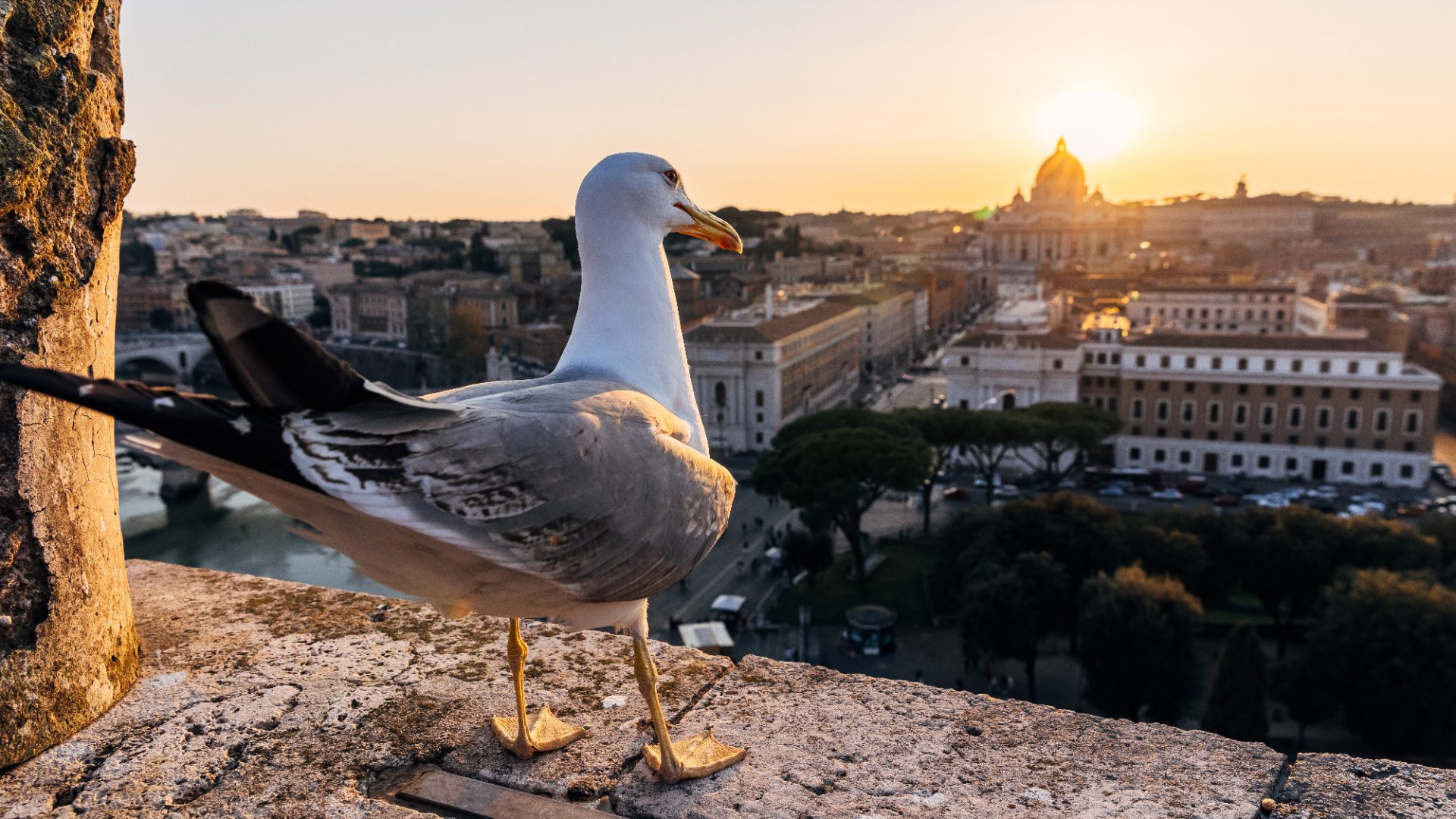I’ll set the scene for you. Imagine walking down Via dei Fori Imperiali with the Colosseum in the background. Imagine being so enamoured with all the ancient history that you momentarily forget the hordes of people around you. Then imagine a gull around the size of a Jack Russell walking past you and giving you the side eye.
That’s precisely what happened to me last month. And before you question whether or not I’m a) off my rocker or b) dislike birds, I can assure you I’m not alone.
Since 2018, the Italian environmental association Earth has been collecting reports on gull attacks in Rome. It turns out that over 100 attacks are reported each month by Roman residents.
“We receive more than 30 calls a week from people who don’t know what to do because they have gulls on their buildings that prevent them from accessing the terraces or roofs,” said Valentina Coppola, ethologist and president of Earth, the Italian environmental association.
“The reason for the aggression is obviously the defence of the nests and the young.”
Nesting season for these gulls is typically from March to May and can last anywhere up to 45 days between eggs being laid and first fledging. One Roman woman, Maria, told the national press she was “kicked away” by a gull nesting on her condominium terrace.
“It was absurdly scary and I even risked falling,” she said.
Nevertheless, not much can be done. Gulls, as ferocious as they may be, are protected under municipal regulations that have been in place for almost two decades.
“Not much can be done because destroying or moving nests is prohibited and in the case of the death of the chicks it becomes a serious crime,” warned Coppola.
“You have to try to defend yourself by going out on the terrace with an open umbrella to protect yourself.”
Should nesting season be the only time Romans need to carry an umbrella around with them like a club to defend themselves, it would be bad, but not unbearable. However, gull attacks happen outside this period too, and not just against humans.
Take, for instance, the viral video of a Roman gull swallowing a rat – whole. Or the decline in the city’s sparrows. Or the time 10 years ago when Pope Francis appealed for peace between anti-government protesters and the government in Ukraine by releasing doves as a sign of peace, only for them to be attacked by a gull.
This should give you an idea of their equally monstrous size and audacity. They are without doubt nearing the top of Rome’s food chain.
But, according to local legend, gulls were purposefully introduced to the city by a man named Fulco Pratesi in 1973 after Pratesi’s friend brought an injured female gull to his office at Rome’s zoo.
“My brother-in-law, Cecco, was director of the zoo and we placed her next to the seal tank, from which she stole sardines,” said Pratesi. “Two years later she met a wild male and they made a nest together, among the rocks.”
Pratesi says he has no regrets about the current swarm of winged mobsters. In all seriousness, they would have probably found their way to Rome without him (all roads lead to Rome, remember?) due to the overflow of rubbish that has become worse since the nearby Malagrotta landfill site closed down in 2013.
Malagrotta was one of the biggest landfills in Europe and a haven for gulls. Nowadays they venture more inland to the capital, where the communal bins spill out into the roads and in the summer heat the smell is puke-worthy. Let’s not forget, either, about the boars that rummage through the kerbside bins.
Rome has a gull problem. Rome also has a problem with managing its rubbish. The two go hand in hand. If something isn’t done about it soon, we shall all be boarded up in our apartments. Hitchcock would have approved.
Jessica Lionnel is a freelance journalist based in Rome




